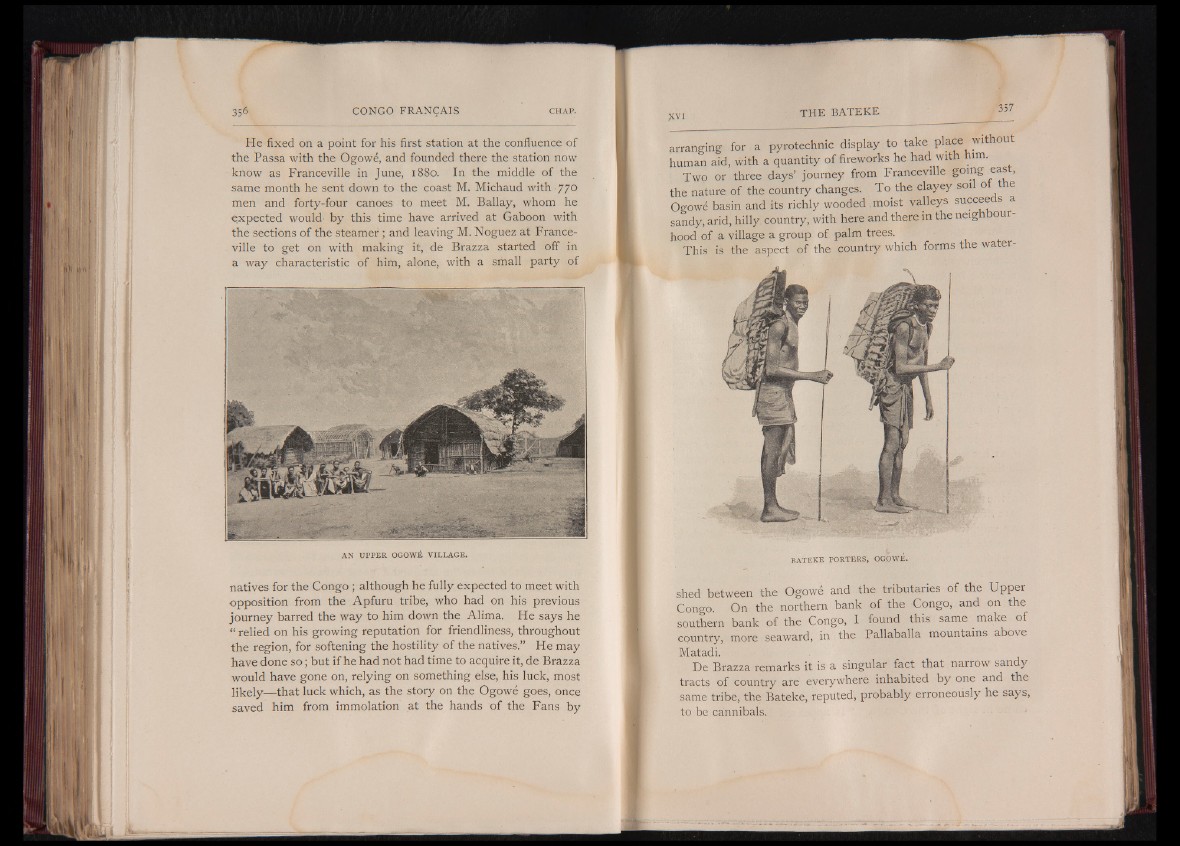
He fixed on a point for his first station at the confluence of
the Passa with the Ogowe, and founded there the station now
know as Franceville in June, 1880. In the middle of the
same month he sent down to the coast M. Michaud with 770
men and forty-four canoes to meet M. Ballay, whom he
expected would- by this time have arrived at Gaboon with
the sections of the steamer ; and leaving M. Noguez at Franceville
to get on with making it, de Brazza started off in
a way characteristic of him, alone, with a small party of
A N U P P E R O G O W E V I L L A G E .
natives for the Congo ; although he fully expected to meet with
opposition from the Apfuru tribe, who had on his previous
journey barred the way to him down the Alima. He says he
“ relied on his growing reputation for friendliness, throughout
the region, for softening the hostility of the natives.” He may
have done so ; but if he had not had time to acquire it, de Brazza
would have gone on, relying on something else, his luck, most
likely— that luck which, as the story on the Ogowe goes, once
saved him from immolation at the hands of the Fans by
arranging for a pyrotechnic display to take p l a c e witho
human aid, with a quantity of fireworks he had with him.
Two or three days’ journey from F r a n c e v i l l e going eas ,
the nature of the country changes. To the clayey soil ot the
Ogowe basin and its richly wooded moist valleys succee s a
sandy, arid, hilly country, with here and there in the neig our
hood of a village a group of palm trees.
This is the aspect of the country which forms the water-
B A T E K E P O R T E R S , O G O W E .
shed between the Ogowe and the tributaries of the Upper
Congo On the northern bank of the Congo, and on the
southern bank of the Congo, I found this same make of
country, more seaward, in the Pallaballa mountains above
Matadi.
De Brazza remarks it is a singular fact that narrow sandy
tracts of country are everywhere inhabited by one and the
same tribe, the Bateke, reputed, probably erroneously he says,
to be cannibals.